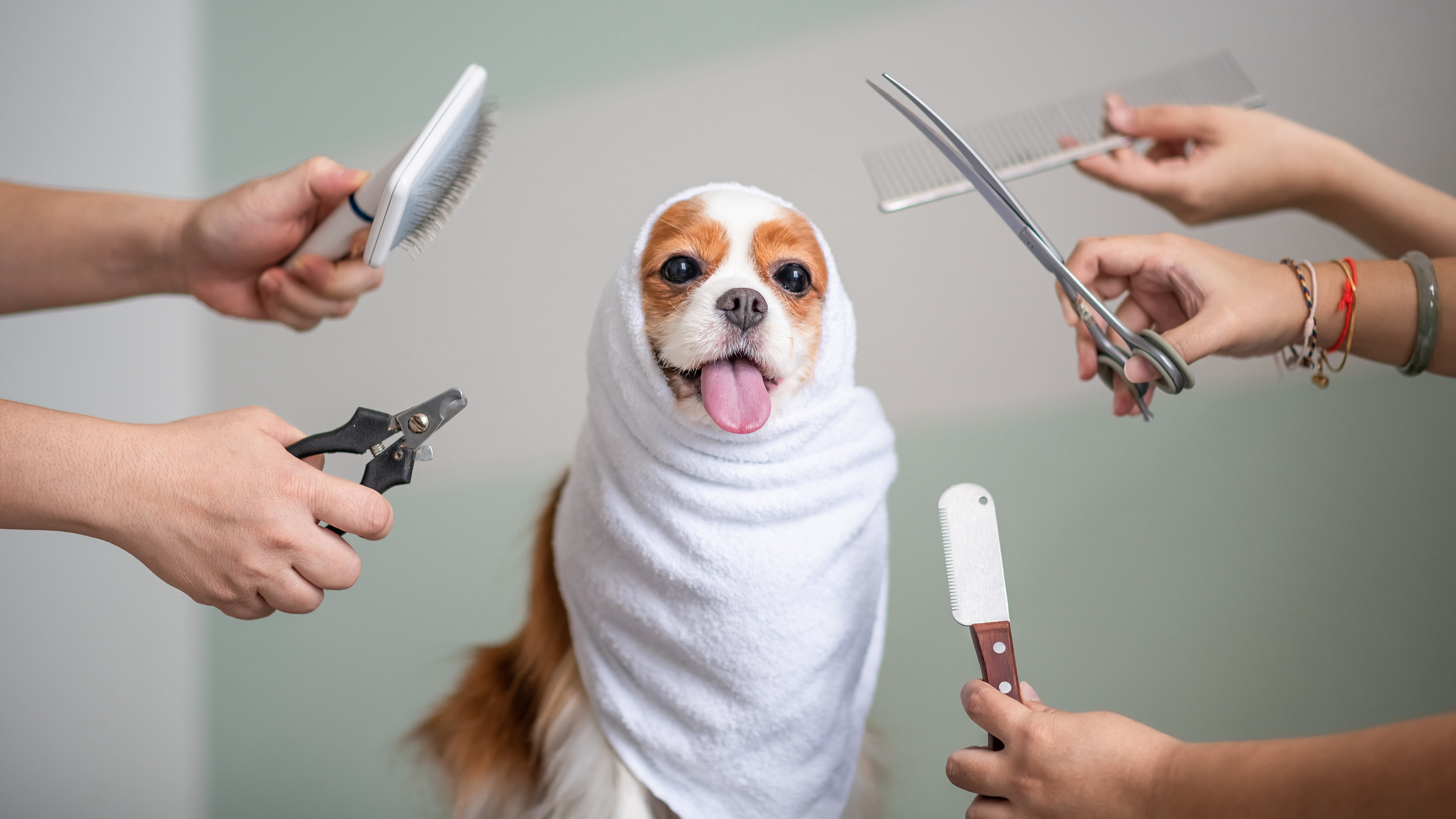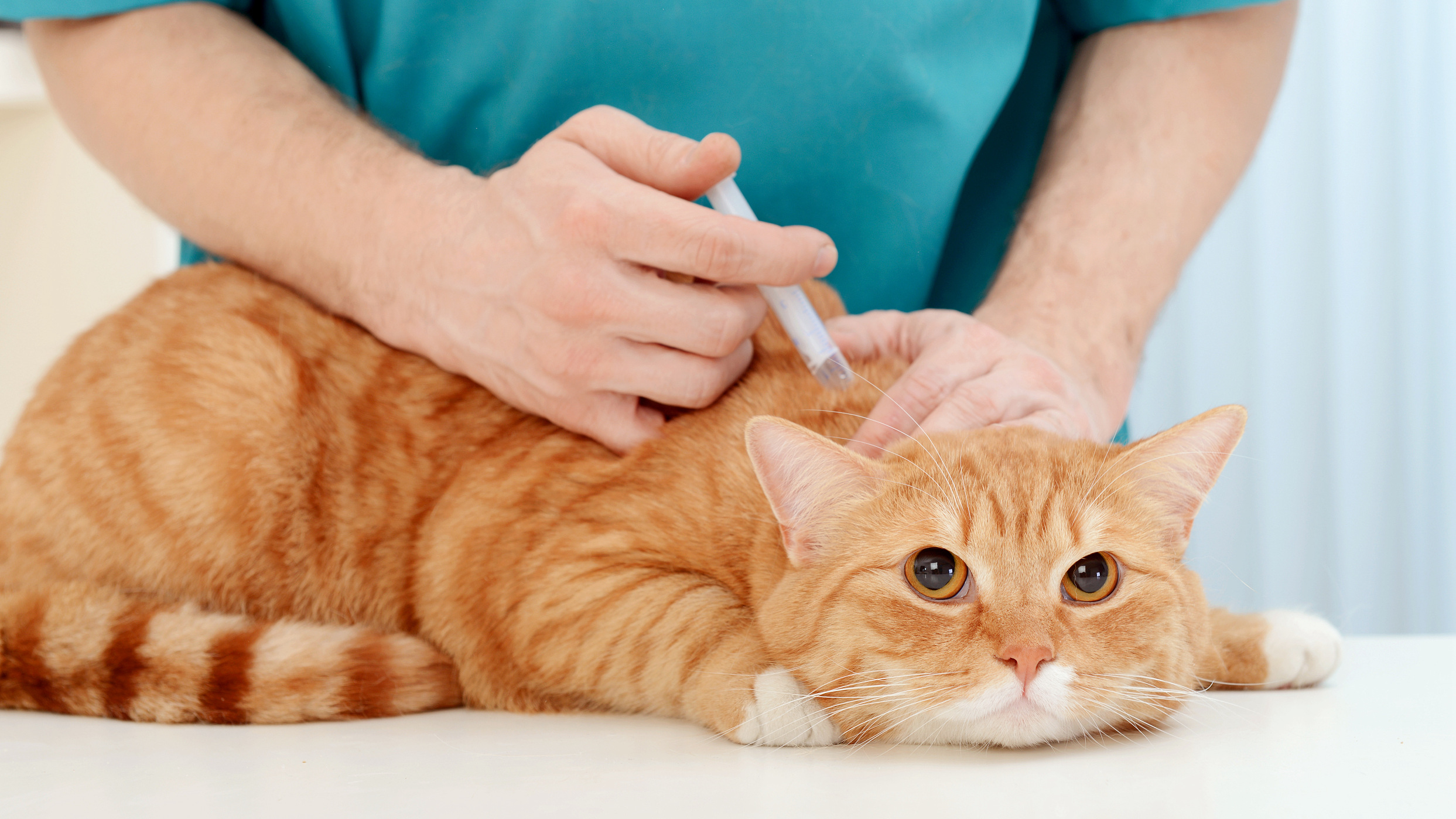It is the morning of Friday, February 7. The streets of southeastern Beijing's Baiziwan area are dotted with eateries and stores that are normally bustling with customers who have returned from their Chinese New Year celebrations.
But, this year, most of the stores are still closed. Only a few masked passersby walk down the sidewalk and the recent snow has not melted, making the picture even more desolate.
A pet shop that sells foods and accessories and provides caring services to pets stayed open during the lunar new year holiday, as it normally did in the past years. However, its business this year has been bleak so far.

Graphic by CGTN's Fan Chenxiao
Graphic by CGTN's Fan Chenxiao
Only a couple of customers wearing masks came into the shop that day; they picked up what they wanted and left quickly.
It is hard to imagine this is in Beijing, a city with a population of over 20 million. The novel coronavirus that first broke out in central China's Wuhan City in December has since spread out across the country and has killed more than 800 people and infected more than 30,000. The virus has limited people's outdoor activities and hit almost every sector of China - and that includes the country's fast-growing pet industry.
"Our in-store pet care services have dropped by about 50 percent as more people are avoiding leaving home," said Gao Maoxiang, founder of the pet shop chain brand Menta Pets, which has 20 stores in China, most of them in Beijing.
Some cities, including Nanjing in eastern China, have closed most of the stores, including pet shops, in order to contain the spread of the virus. Only some pet hospitals stay open in Nanjing for emergencies, according to media reports.
Although there are no clear restrictions on pet shops and hospitals in most Chinese cities, the outbreak has hammered their operation and business.

Pet shop: 'Reduce expenses'
"It is normal for the pet industry to have less business during the Spring Festival, but compared to previous years, this year may see an even larger decrease in business due to the outbreak," Gao said.
However, the retail business has surprisingly seen a surge, despite the outbreak, primarily from new retail business which increased about 70 percent during the New Year holiday on a month-to-month basis. Gao said, "the rapidest sales growth was in cat food, liter and pet diapers during this period."
"The shift of people's consumption habits [to new retail] has been enhanced over the period by the outbreak," Gao said. "The outbreak put pressure on the logistics during the Spring Festival period, creating a much extended delivery time."
So, more people now prefer to order online in stores that have real shops near them so they can get what they want quickly thanks to last-mile delivery. This seamless engagement between online and offline channels is called 'new retail', a strategy first initiated by Alibaba Group.
But overall, the outbreak still affected his business. "If there was no such epidemic, we would see an overall business growth of over 50 percent, but this year, the overall business has almost stagnated in this period," Gao said.
Despite operational pressures caused by the outbreak, "we have not taken any steps to downsize our team, because layoffs are not a very good decision right now. We will end up hiring people back if the outbreak gets fully controlled in a couple of months," Gao said, adding that "if the outbreak lasts longer, we may consider measures such as rotating our schedule to limit costs."
Reducing business time is one method Gao has used so far in the attempt to offset the side effects that the outbreak has brought to his company. "This is equivalent to a decrease of about 20 percent of our staff expenses, and save utility bill costs as well," he said.
Additionally, he said the company actively reached out to the landlords of the stores to ask for a rent reduction. As of now, two out of their 20 landlords have agreed to exempt a month of rent.
Gao is confident that the industry will see a strong bounce back once the outbreak is completely over, given that the pet industry in China is on a track of fast growth. This is also the main reason why the company is not considering layoffs.
"The outbreak just impedes the sector's short-term demand."

Pet hospital: 'Strictly by appointment'
It is not realistic for pet or human hospitals to shut down, even during this coronavirus outbreak.
Mary Peng, CEO and founder of International Center for Veterinary Services (ICVS), the first wholly foreign-owned pet hospital in Beijing, told CGTN that the number of visitors to the hospital decreased by about 20 percent since the outbreak began.
The hospital is currently strictly by appointment so they can control the number of visitors inside the facility, a move that is in line with the government's efforts to reduce crowds to contain and prevent the novel coronavirus spread, she explained.
The Chinese-American entrepreneur, who has been living in China for over 30 years, is also a veteran of SARS.
Speaking of recent false claims that animals can transmit the novel coronavirus so people may abandon their pets, she said: "The same fear happened in 2002 and 2003 regarding our pets, dogs and cats, people were very scared but there never was any scientific evidence to prove that SARS virus can infect these animals."

Source: World Health Organization
Source: World Health Organization
This time the same science tells that companion pets cannot be infected by the novel coronavirus. "The panic to abandon them is not necessary," Peng said.
"We really need to base our knowledge and understanding on scientific evidence, not on rumors, fear, or panic," she added.
According to Peng, the Chinese New Year holiday is traditionally quieter because so many families are away and, even though the entire industry is affected by the epidemic, Peng believes it is just in the short-term.
"I don't think there is a business in China that isn't affected… we are trying to maintain our operations as much as we can in the short-term. In the long term, the business will be able to go back to normal operations. We are all working to get through this together."
Having lived through the SARS epidemic, Peng said, "I have full faith in the Chinese government, the scientists that are studying the virus and the international community that is helping. It is going to be fine, but it will take time."

Pet products company: 'Increasing sales promotion'
"Our overall sales revenue is estimated to drop around 10 percent for the holiday period due to the impact of the outbreak," said Yang Jinyu, chairman of the board at Shenzhen-based pet foods and accessories' seller, Pet Holding Innovation Technology Co. Ltd.
To fight against the spread of the virus, the Chinese government extended the lunar New Year holiday and so most of warehouses delayed their staff's return until February 10 or later, and the logistics industry is still recovering from the long break.
"Customers can still order our products online from JD.com and Tmall. Sales of our pet foods on JD store has doubled year-on-year," Yang said.
This is because some customers have been storing up food and other essentials for their pets due to the outbreak, he explained.
Yang added that "as the logistics are now overloaded, it will take longer for the customers to receive their parcels. But this problem won't last much longer as the logistics will fully recover soon.”
But off-line sales were hit by about 30 percent. Many of their distributors nationwide have had to close shops to save on operational costs because of this lack of customers.
"To get through the situation with our business partners, we have rolled out greater promotions that we expect to last until the end of March. On one hand, they aim to increase our sales, on the other hand, they're to help the clients mitigate the loss," Yang said.
The company donated pet food and conducted charitable sales for the epicenter Wuhan, and Yang said they are very sad about abandoned pets because of the rumors saying they could transmit the novel coronavirus.
"When the epidemic situation gets under control and people's lives return to normal, I think the confidence in having pets will be restored. I am positive about the overall consumption in the pet industry."